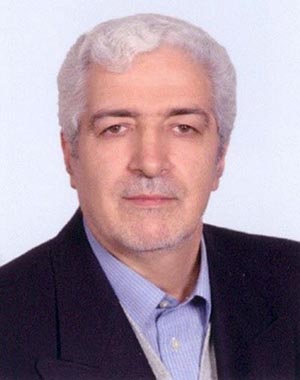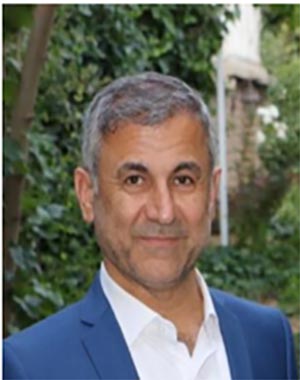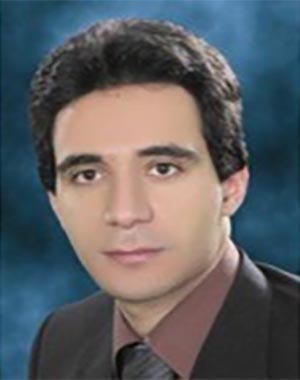Abstract
“NanoMaterials” are nanoscale materials that can be defined as a set of substances whose at least one dimension is less than approximately 100 nanometers. A nanometer is one millionth of a millimeter – approximately 100,000 times smaller than the diameter of a human hair. Nanomaterials are of interest because at this size scale, their unique optical, magnetic, electrical, mechanical and other properties emerge. These emergent properties have the potential for great impacts in electronics, medicine, and other fields. This workshop presents an introduction to Nanomaterials from synthesis to properties and their applications. In addition, the methods which can be used to characterize the Nanomaterials will be introduced in both microscopy- and X-ray-based techniques. The session on “Nano Surface Science” covers a wide range of scientific and engineering issues and topics. The focus is on grasping a deep understanding of surfaces and interfaces at the nano-scale such that in any and all situations the issues or problems regarding surfaces and interfaces would be identified, tackled and resolved. Topics include surface energy/tension, surface preparation and cleaning, surface treatments, vapor deposition, and some characterization techniques. The “Nano Electronics” session briefly covers such active research areas as thin films, magnetic materials, superconductors, and semiconductors leading to the advent of quantum dots whose optical properties can be finely tuned to emit or absorb specific wavelengths (colors) of light, merely by controlling their size in the nano scale.
Prospective Audience
All engineers in different disciplines, especially computer, electrical and mechanical engineers can easily follow the workshop. Senior engineering student at bachelor’s level can also follow the content. Masters and Ph.D. students and graduates who are willing to further expand their knowledge in applied robotics, and deep learning methods can mostly benefit from this jump start workshop. It is intended that the potential developers and data scientists who are looking to build AI powered solutions in robotics application get the most out of this workshop.
25 – 28 August
Tentative Program
Day One:25.Aug. 2019 Morning Session
| Items | Subject | Time | Speaker | Details |
|---|---|---|---|---|
| Nanomaterials (Synthesis and Properties) | ||||
| 1 | Introduction to Nanotechnology | 30 | Prof. Shokuhfar | |
| 2 | Nanomaterials (Synthesis and Properties) | 60 | Dr. Khodaei | |
| Break | 15 | |||
| 3 | Nanomaterials (Synthesis and Properties) | 60 | Dr. Khodaei | |
| 4 | Free discussion | 15 | – | |
Day One: 25.Aug. 2019 Afternoon Session
| Items | Subject | Time | Speaker | Details |
|---|---|---|---|---|
| Nano Surface Science and Nano Electronics | ||||
| 1 | Nano Surface Science | 75 | Dr. Siadati | |
| Break | 15 | |||
| 2 | Nano Electronics | 75 | Dr. Siadati | |
| 3 | Free discussion | 15 | – | |
Day Two:26. Aug. 2019 Morning Session
| Items | Subject | Time | Speaker | Details |
|---|---|---|---|---|
| Nanoanalysis | ||||
| 1 | Characterization of Nanomaterials (Microscopy based) | 90 | Dr. Khodaei | |
| Break | 15 | |||
| 2 | Characterization of Nanomaterials (X-ray based) | 90 | Dr. Khodaei | |
Day Two:26. Aug. 2019 Afternoon Session
| Items | Subject | Time | Speaker | Details |
|---|---|---|---|---|
| Nano Tour | ||||
| 1 | Visiting of Permanent Exhibition of IRAN Nanotechnology Innovation Council (INIC) | 180 | ||
Speakers Biographies

Ali Shokuhfar was educated at the Sharif University of Technology in Tehran, he received his PhD degree from the University of Leeds England in 1986, and then was appointed to the academic staff and Dean of the Faculty of Mechanical Engineering. K. N.Toosi University of Technology Tehran Iran from 1987-1991. He has undertaken a postdoctoral research program in the area of solidification in the Department of Materials Science and Engineering at Massachusetts Institute of Technology (MIT) USA in 1995-6.
Prof. Shokuhfar was the Vice-President for research of K. N.Toosi University from 1991-1993. He was the founder and Director of the Advanced Materials and Nanotechnology Research Laboratories at Department of Mechanical Engineering K. N.Toosi University of Technology. He established the Department of Materials Science and Engineering at K. N.Toosi of Technology in 1998 and serves as Head of this Department from 1998 till 2003. He is a member of the editorial boards of International Journal of Engineering and some other national Science and Engineering Journals, as well as scientific committee of some International conferences. He is also Organizer/Co-Organizer of some International and national conferences/symposia. Prof. Shokuhfar has taught several courses including Materials Science, Phase Transformation, Nanostructures, Nano-mechanic and materials for both undergraduate and postgraduate students, several PhD candidates were graduated under his supervision, he has published more than 350 Journal and conference papers and presentations. He has also published three books and one monograph in the areas of Materials Science, Composite Materials and Nanotechnology. He was awarded many honors certificate for his excellent research and teaching activities. His main research interests are phase transformation, advanced materials, nanostructures and nanocomposites.

M.H. Siadati received his B.S. degree in Metallurgical and Welding Engineering from California Polytechnic State University, San Luis Obispo, CA, USA, in 1985, his M.S. in Chemical Engineering in 1993 from New Mexico State University, Las Cruces, NM, USA, and his Ph.D. in Materials Science and Engineering in 2004 from University of Texas at El Paso, El Paso, TX, USA. Dr. Siadati’s academic activities has been teaching Materials Science and Engineering classes particularly Advanced Surface Science and Engineering and Electronic Materials classes in the last 10 years. He is experienced in synthesis and characterization of “nano-pore” size materials, thin film formation and composite materials at the nano scale. His international activities include:
- “Study of Pore Wall Structure Development in MoS2 Catalysts,” using small angle X-ray scattering (SAXS), Stanford Synchrotron Radiation Laboratory, 2002, USA
- “In-situ Study of Nanocomposites in Tension,” using small angle X-ray scattering (SAXS), ALBA Synchrotron Radiation Laboratory, 2017, Barcelona, Spain

Mehdi Khodaei received his Bachelor degree in 2005 and Master degree in 2008 from the Department of Materials Engineering, Isfahan University of Technology, Iran. In 2014 he obtained his PhD degree from University of Tehran, Iran in Nanotechnology-Materials Science under supervision of Professor Seyyed Ali Seyyed Ebrahimi and under advisement of Professor Sunggi Baik. His PhD thesis was on Magnetoelectric Multiferroic Nanocomposite thin films and he has authored more 10 peer reviewed papers in this field. He was also visiting researcher at Pohang University of Science and Technology (POSTECH), Korea, (March 2012-June 2013) working at Ferroelectric Nano Materials Lab. under supervision of Prof. Sunggi Baik as well as Pohang Accelerator Laboratory (Korea Synchrotron Facilities) under supervision of Dr. Yong Jun Park. He is currently working as an assistant professor at Faculty of Materials Science and Engineering, K.N. Toosi University of Technology, Iran.
Course Description
Nanomaterials
(Synthesis and Properties)
This course introduces the fundamental principles needed to understand the behavior of materials at the nanometer length scale. It is also containing the definition of the different classes of nanomaterials with applications ranging from information technology to biotechnology. The main and last part of this course deals with the describing of different synthesis method of nanomaterials. Topics include: introduction to different classes of nanomaterials; nanoscale synthesis of nanomaterials, including chemical and physical vapor transport, solution chemistry, and nanofabrication methods; and discuss the origin of size effects in controlling the properties of nanomaterials (electronic, magnetic, optical and mechanical properties).
Characterization of Nanomaterials
(Microscopy and X-ray based)
The course will deal with the introducing of Microscopy and X-ray based techniques for the characterization of nanomaterials. The principle of electron microscopy (SEM and TEM) will be introduced and their applications in the characterization of nanomaterials will be explained. This course will also deal with application of scanning probe microscopy (SPM) and introduce the fundamental behind it including the explaining the type of SPMs and their application in characterization of nanomaterials. The second part of this course contains the X-ray based characterization of nanomaterials using conventional X-ray as well as the use of synchrotron radiation for characterization of nanomaterials. The course will be divided into several sections, each having a set of case studies. At the end of this course, the audience will be familiar with a wide range of instrumental analytical techniques and be ready to take up their applications for advanced level research in nanotechnology.
Nano Electronics
(Nano Electronic Materials and Devices)
This session covers the following active research areas: Thin films, magnetic materials, superconductors, nano-materials and coatings, bio-materials and coatings, nano-bio materials and coatings. Emphasis is put on the applications of materials in the industries: Electrical, electronic, computer, telecommunication and instrumentation. Engineers in these disciplines should have: Basic and applied knowledge of materials so they can do their work more effectively when using materials and devices. Study of functional materials, their physical and chemical principles affecting properties and performance of particularly intrinsic/extrinsic semiconductor materials. Topics include electronic and ionic conduction basics and theories as related to metals, dielectrics/ceramics and semiconductors, electron resistance and mobility, drift velocity of electron motion, bonding, band-gap engineering, superconductivity, magnetic and optical properties, novel materials systems, and characterization. Description of basic semiconductor materials for device processing; preparation and characterization of silicon, III-V compounds, and photolithographic techniques and principles of thin film formation. Upon successful completion of this session the participants will be able to: 1. Identify basic concepts in nano electronics including semiconductor materials, photolithographic techniques, and principles of thin film formation; 2. To appreciate the importance of nano electronics in functional materials; and 3. Critically read professional nano electronics papers.
Nano Surface Science
The session on Nano Surface Science covers a wide range of scientific and engineering issues and topics. The focus is on grasping a deep understanding of surfaces and interfaces at the nano-scale such that in any and all situations the issues or problems regarding surfaces and interfaces would be identified, tackled and resolved. Topics involve ‘catalysis’ in which the surface is purposely exposed to the reactants for optimal performance, and on the other hand the subject of ‘coatings’ in which the surface is treated to remain intact and protected against wear and corrosion. Topics include surface energy/tension, surface preparation and cleaning, surface treatments, vapor deposition, and some characterization techniques. Upon successful completion of this session the participants will be able to:1. Identify basic concepts in surface science including surface to volume ratio, vacuum technology, and surface adsorption/reaction/desorption; 2. To appreciate surface science understanding for any given scientific problems.
General Information
Period: 25-28 August
Location: K. N. Toosi University of Technology
Eligibility: Graduated, Professors, …
Course Language: English
Organized by: Faculty of Material science and Engineering
Organizing Partner
- K. N. Toosi University of Technology
- Office of vice-chancellor for Global Strategies and International affairs
In case of Further Question please contact:
E-mail: Int_workshops@kntu.ac.ir
Phone: +98-21-88881003
Program Fee: 300$
The fee includes:
- educational courses
- meals
- accommodation in a hotel
- Trip to Hamedan
- Airport pick-up
- several social activities
